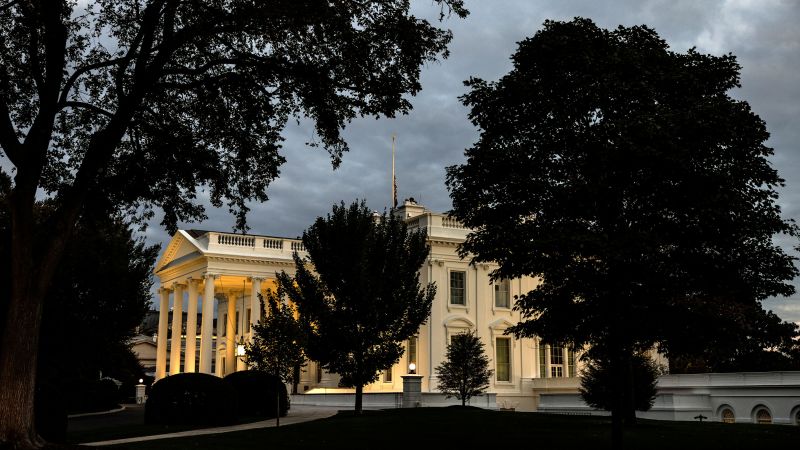deleted by creator
The problem though isn’t a lack of housing, we actually have plenty for everyone. The problem is corporations buying up homes to rent them and in the process jacking up home prices.
If all these newly made homes are left to the tender mercies of the market there won’t be a slew of new homeowners. Just more rentals.
Well it is both, suburban hell doesn’t scale up, it’s meant to be exclusionary.
I’ve said this before, but Seattle actually had all of the rental corporations using one rental service that chose the prices for the rentals. Meaning, they were price fixing our rental market.
If you’re a tourist market like Seattle, the corporations buying up apartment buildings for airbnb’s is also a huge problem.
Yup. This shit needs to be illegal nationwide. They literally encourage vacancies in order to keep pricing going upward and coordinate pricing in order to keep profits maximized. It’s gross and these fucks should be vilified.
deleted by creator
I agree that its short term rentals but I don’t think it’s the mom & pop places that are a problem. There are tons of apartment buildings in Seattle owned by corporations that are used for short term rentals only. Hawaii tried to get around that by requiring licenses and month long leases unless you live on the property or something. I don’t know if it’s working or not for them since it’s been awhile since I’ve checked. I’m guessing Airbnb just words it to get around the laws.
deleted by creator
I guess it would depend on where they bought it. If it was in Seattle? People would buy them in a heartbeat and then there would be a shit ton of rentals on the market which would then make the long term rentals go down. Most people eventually want a house and a yard if they have a family and/or pets. The “luxury” apartment game is for young people for the most part. They could also rent it out until the market stabilizes.
Location is a major issue. A lot of empty housing stock is in places no one wants to live in anymore. There is a lack of housing in high demand areas. There’s no silver bullet, but converting commercial real estate in those high demand areas is ideal to add useful housing.
But yes, corporations sucking up residential real estate needs to be tackled just the same.
To say nothing of the massive expense of remodeling those commercial properties to actually work as residential. When it comes to the big multistory buildings in the larger cities that need it most, the plumbing alone would be a nightmare, along with splitting up all the electric service so individual usage can be metered. And then you have to gut and rebuild the interiors to split everything up and still have proper fire code compliance.
I love the idea and I hope it gains traction but logistically and financially there are some tall hurdles to overcome to implement this properly.
Fine you won’t return to the office from WFH, we’ll make the office the home, checkmate employee!
I hope they work on fucking the investment property market as well.
I’ve said for a while that vacancy taxes should be extremely painful. Like 10% of the land/structure value per month, increasing 2% every month after that.
They’re gonna need to because ‘Hey corporate land owner, were gonna make all this residentia’ is gonna scare a lot of rich people. Which would be fine if we didn’t run a market economy that collapsed if rich people get scared.
This is great! I’m glad it includes provisions for changing zoning laws, that seems to be a major reason for housing shortage in many areas.
deleted by creator
Sure, that’s a factor that needs to be considered, but another factor that needs to be considered is the value of the land itself. You can build cheap housing out in the middle of nowhere all you want, but it doesn’t matter how cheap it is if there are no jobs to pay for the housing and no services to get stuff like groceries conveniently.
Converting commercial properties to residential is certainly more expensive upfront, but it creates more housing where it actually is needed AND wanted, cities and suburbs.
You pretty much have to strip the interior ripping everything out for a modern office. So no your not of base. But they do turn old warehouses and buildings into apartments and lofts in cities fairly often though.
This is the best summary I could come up with:
The Biden administration announced new steps Friday to ensure access to affordable housing, launching a slew of resources to convert high-vacancy commercial buildings to residential use.
The effort is an attempt to address what the administration says is a dearth of much-needed, affordably priced, conveniently located and energy-efficient homes.
As part of Friday’s announcement, the Department of Transportation will release new guidance on more than $35 billion in lending available for transportation-oriented development projects.
According to a fact sheet shared with CNN ahead of the announcement, the administration estimates the guidance “will increase housing supply, while encouraging state and local governments to improve their zoning, land use and transit-oriented development policies.”
“The pandemic really changed the patterns of how many Americans work and live and commute, and right now, across the country, we’re seeing decades-high levels of office vacancies in many downtowns, while at the same time, many of America’s cities and towns face a steep shortage of housing, and families are struggling to afford housing and transportation,” Transportation Secretary Pete Buttigieg told reporters on a call previewing the announcement Thursday.
HUD will begin accepting applications for $85 million in funding through the Pathways to Removing Obstacles to Housing program, which makes money available for the development of adaptive reuse strategies and the financing of conversions.
The original article contains 568 words, the summary contains 216 words. Saved 62%. I’m a bot and I’m open source!





